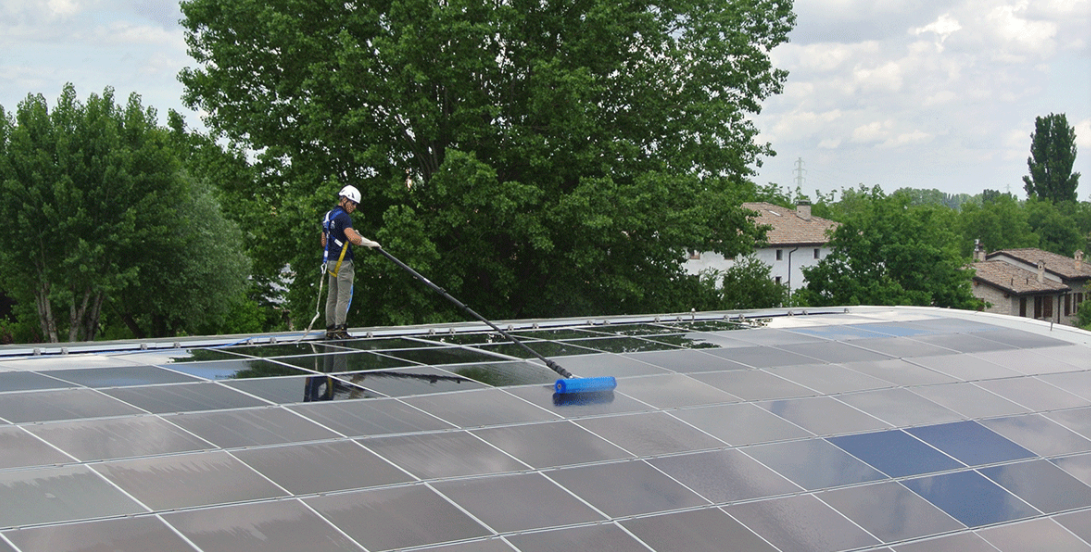Yes. Yield losses due to soiling are often underestimated. According to practical experience reports, yield losses are between 10 and 30%. It is no longer a secret that solar power and photovoltaic systems require regular cleaning. Just about every system should be cleaned during its service life. It is sensible to clean a part of a module with a white cloth in order to assess the degree of soiling.

What causes soiling on a PV system?
Low roof pitch: due to a low roof pitch, rain no longer "washes" dust and dirt from the modules. A dirt film accumulates, especially on the lower edge.
Farms: farms are severely affected through the use of heavy equipment, and poultry and feeding stalls also have to deal with soiling.
Bird droppings: bird droppings are pretty much the most stubborn type of soiling, which can even etch the modules.
Other environmental influences are, for example, pollen, soot, vehicle emissions, leaves, tree needles (resin), moss, algae, lichens, lime, and many others: in spring, pollen settles on the modules.
If your system has trees nearby, leaves and tree needles are also a possible soiling hazard. Or think of a busy road – exhaust fumes of cars accumulate on the modules. Over time, moss grows onto the edges of the module frames and can even grow into the module.
Is it worthwhile to clean solar modules on a regular basis?
Most definitely. In no other sector are profits so readily wasted as in the photovoltaic industry! You'll hardly find a sector in which profits and losses can be calculated so quickly and easily. Simply by measuring before and after cleaning. Some systems exhibit yield losses of up to 30%. These systems generate 30% less electricity, and therefore 30% less remuneration for feed-in. – only clean modules offer maximum performance & yield.
Can solar cleaning process damage the modules?
No. The SOLA-TECS cleaning systems are designed exclusively for this purpose and therefore can not cause any damage. On the contrary. Due to residue-free cleaning, the materials are preserved in the long run and do not remain exposed to the partially corrosive dirt particles. Since demineralised water is used, lime stains can not form and the "pure water" has an easier time absorbing the dirt. No need to squeegee and dry the cleaned surface, clean without any chemical detergents! We use DI resin filters to demineralise the water.
How frequently should a photovoltaic system be cleaned?
There is no one-size-fits-all answer to this question. It can depend on the location of the system. In rural areas, every 2 years makes sense from a financial point of view. Once a year for large systems on agricultural buildings or in direct proximity to farms is usually sensible – in case of heavy soiling on stables, cleaning twice a year may increase yields even more.
Which substance is used to clean with?
Rainwater is the best solution: if it is not available, then household water is demineralised with a DI resin filter. Demineralised water is water that does not contain any salts, ions and minerals. Demineralised water is produced using an ion exchanger (DI resin filter).
Where do I find my serial number?







